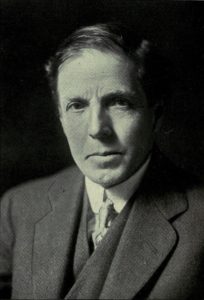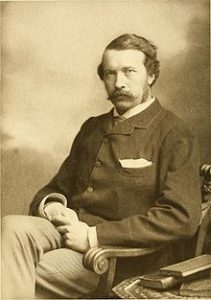
There is a plethora of material about Darwinian evolutionary theory.
Working up along the path of its reception in history, one could spend a lifetime venturing down the lane ways that exhibit them. A ton of mixed responses eventually materialised in cementing a fictitious dichotomy between creation vs. evolution in the famous Scopes Trial in 1925.
The fallout from this is still having an impact on the dialogue between science and faith today.
Prior to 1925, not all evolutionary theorists agreed on the same interpretation and a lot of institutions experienced factional groupings. This included the Church. Though there were those who disagree, a large amount of clergy and theologians originally had no problem with Darwin’s theory; some even welcomed it.
Many of the clergy were lay scientists, intrigued by natural history and the discoveries being unravelled as man sought to conquer mountain, monster and myth.
The fracture between church and science seems to have become more evident after Darwin’s publication of the ‘Decent of Man’ in 1871. This book is the most attributed to the birth of Social Darwinism, which with the help of Thomas Huxley, who did his best to push Christianity out of the academy, grew into a grotesque totalitarian scientism, endorsed by one of Darwin’s most enthusiastic supporters, the German Ernst Haeckel (1834 – 1919).
The outcomes of this fracturing are best explained by the experience of Vernon Kellogg, an American evolutionary biologist, who prior to America’s involvement in World War One was sent to Belgium to assist in providing humanitarian relief. In 1917, he noted that Social Darwinism was the celebrated ideology of the German high command. Unknown to him at the time, Kellogg had been given a front row seat to the future:
“One by one any German would give up, in all matters in which he acted as a part of the German administration, all of the thinking, all of the feeling, all of the conscience which might be characteristic of him as an individual, a free man, a separate soul made sacred by the touch of the Creator.
“And he did this to accept the control and standards of an impersonal, intangible, inhuman, great cold fabric made of logic and casuistry and utter, utter cruelty, called the State — or often, for purposes of deception, the Fatherland.
Kellogg continues:
“Well, I say it dispassionately but with conviction: if I understand theirs, it is a point of view that will never allow any land or people controlled by it to exist peacefully by the side of a people governed by our point of view.
“For their point of view does not permit of a live-and-let-live kind of carrying on. It is a point of view that justifies itself by a whole-hearted acceptance of the worst of Neo (social) Darwinism, the omnipotence of natural selection applied rigorously to human life and society and culture.
“The creed of the All-macht (omnipotent power) of natural selection based on violent and fatal competitive struggle is the gospel of the German intellectuals; all else is illusion and anathema.”
Worth noting, the very foundations for National Socialist ideology was conceived long before Nazism was even a word:
“The assumption among them is that the Germans are the chosen race (the Ubermensch), and German social and political organisation the chosen type of human community life, and you have a wall of logic and conviction that you can break your head against but can never shatter – by headwork. You long for the muscles of Samson…
“Here the pale ascetic intellectual and the burly, red-faced butcher meet on common ground here. And they wonder why the world comes together to resist this philosophy – and this butcher- to the death!” [i]
Scientism is defined as an “exaggerated trust in the efficacy of science” (Merriam-Webster). Kellogg’s experience, and horror at what he saw, led him to make an assessment on the impact of scientism. This pushed him beyond pacifism, becoming an advocate for just resistance against such views.
Sensing the necessity for it, in 1924 Kellogg wrote an essay entitled The Modern View of Evolution. In it he took the opportunity to distance ‘Darwinian Evolutionary Theory’ from ‘Social Darwinism’. The former a scientific endeavour. The latter a religion built on evolutionary ethics and viciously applied to every aspect of life by its new priests and followers.
The 19th Century’s quest to conquer mountain, monster and myth now included God, leading Nietzsche to famously, and rather presumptuously, proclaim that God is dead.
Scientific inquiry was spurred on by the higher criticisms (such as historical criticism) birthed in the 18th Century. It was open season and everything was fair game.
This pushed the line of suspicion and criticism against the Biblical texts, opening up a feeding frenzy on the Church and centuries of Christian faith, practice and thought.
These criticisms however, ended up only acting as a necessary purifier – a necessary shaking of the foundations that even opened up room within the Church to push back against the extremes of neo-Protestantism (liberal theology – denial of miracles/resurrection et.al) and the inhumane threat of Social Darwinism.
The general view here is that the criticisms functioned as kind of back-to-basics qualifier which consequently only empowered Christianity by reviewing its role and claim in the world.
They were seen to be buttressing facts about Christian faith, practice and thought. As a result Christianity, albeit somewhat weathered and shaken, could stand up well against future scientific criticisms and modern heresy. I wouldn’t venture as far to suggest that in this period of history Christianity went through a scientific-enlightenment, a baptism-of-fire, but it certainly carries that image well.
In large part scientific inquiry does seem to have buttressed Christian faith and thought. For instance: it opened up questions regarding the historical dating of the biblical text, only to confirm more than it might have otherwise refuted.
This is echoed in one of Darwin’s youngest colleagues, George John Romanes in his posthumous work: ‘Thoughts on Religion’, 1904.
“Prior to the new [Biblical] science, there was really no rational basis in thoughtful minds, either for the date of any one of the New Testament books, or, consequently, for the historical truth of any one of the events narrated in them…
“…but now this kind of scepticism has been rendered obsolete, and forever impossible; while the certainty of enough of St.Paul’s writings for the practical purpose of displaying the belief of the apostles has been established, as well as the certainty of the publication of the Synoptics (Matthew, Mark & Luke) within the first century’[ii].
Out of interest here is Romanes, himself an evolutionary biologist, positing on the benefits:
“It is a general, if not a universal, rule that those who reject Christianity with contempt are those who care not for religion of any kind. ‘Depart from us’ has always the sentiment of such.
“On the other hand, those in whom the religious sentiment is intact, but who have rejected Christianity on intellectual grounds, still almost deify Christ. These facts are remarkable.

“If we estimate the greatness of a man by the influence which he has exerted on mankind, there can be no question, even from the secular point of view, that Christ is much the greatest man who has ever lived.
“It is on all sides worth considering that the revolution effected by Christianity in human life is immeasurable and unparalleled by any other movement in history; though most nearly approached by that of the Jewish religion, of which, however, it is a development, so that it may be regarded as a piece with it.
“Christianity thus is immeasurably in advance of all other religions. It is no less so of every other system of thought that has ever been promulgated in regard to all that is moral and spiritual.
“Whether it be true or false, it is certain that neither philosophy, science nor poetry has ever produced results in thought, conduct, or beauty in any degree to be compared with it.”[ii]
Romanes along with Vernon Kellogg, are not in line with Social Darwinian ethics, watered down theology or any universal application of science – such as seeking to apply a totalitarian scientism to the sociopolitical arena; deliberately seeking to disinherit Judeo-Christian theology from its rightful place in the academy, as a necessary and serious critique of everything that surrounds us or seeks to consume us.
Jesus Christ and those He represents are a continual bulwark against Social Darwinism’s Übermensch fascism, Marxism’s socialist atheist police State and Islamist expansionism.
To be so convinced that true reality (or freedom) is existence without the One who birthed that existence is to give in to an arrogance which rejects God’s grace, and chains humanity to the Dark agenda of total extinction.
Kellogg and Romanes critiqued extremes. At the same time they present us with documents that serve to fund a project of objective analysis that seeks to extinguish the unnecessary and manufactured “war” between science and the Christian faith.
References:
[i] Kellogg, V.L. 1917 Headquarters Nights: A Record of Conversations and Experiences at the Headquarters of the German Army in France and Belgium (Annotated). Rueggisberg Press. 2010
[ii] Romanes G.J, 1904 Thoughts on Religion.
[iii] Ibid, Loc.1641 & 1650
‘Thoughts on Religion’ can be acquired for free from Project Guttenburg here: http://www.gutenberg.org/ebooks/16942
This article was originally published at http://www.rodlampard.com/



